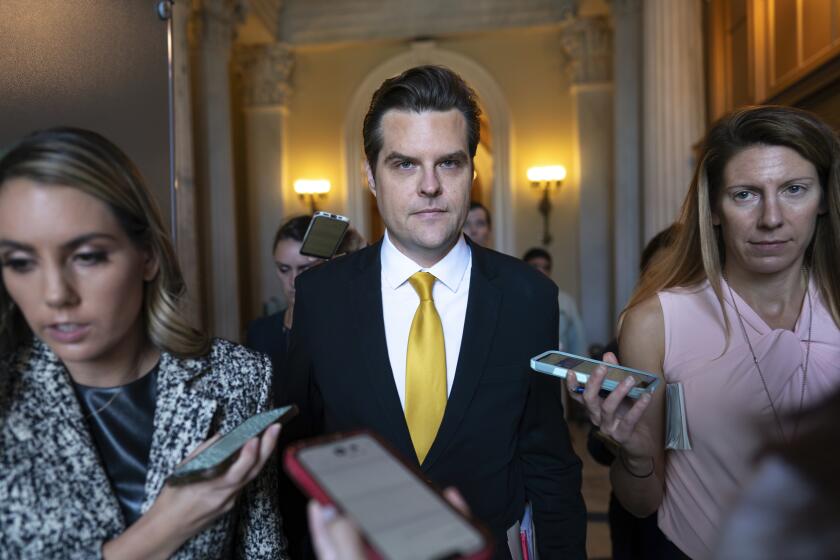The House GOP’s spending problem
House Republicans often complain that Senate Democrats have been lax on fiscal matters because they haven’t approved a budget resolution since 2009. But those resolutions are largely symbolic; the real spending decisions are made in the dozen appropriations bills that Congress is supposed to pass by Oct. 1, the start of the new fiscal year. And on that score, the House GOP leadership failed miserably last year, and is about to do so again.
This week the leadership plans to bring up a bill to fund the federal government’s operations for the final six months of fiscal 2013. The measure would update the spending priorities for the military and veterans but leave the rest of the government on autopilot, with the funding for individual programs left exactly where it was set in 2011. Those funding levels would then be reduced by the mindless across-the-board cuts of the “sequester” that went into effect March 1. As a result of the outdated allocations and meat-cleaver cuts, some valuable programs would receive too little funding while low-priority projects would receive too much.
The bill ignores the work that House and Senate appropriators have done to examine and prioritize programs on the nondefense side of the ledger. That’s consistent with the approach House Speaker John A. Boehner (R-Ohio) took last year, when he opted for a six-month spending bill that renewed the previous year’s funding levels instead of letting the appropriators do their work. His rationale now is the same as then: He wants to be sure that new funding is approved before the previous allotment runs out. But preventing a government shutdown is the bare minimum that Congress should be doing.
The bigger problem is that House Republicans have been reluctant to follow their leaders, even when it means failing to perform some of the basic functions of government. Lawmakers have missed deadline after deadline in the last two years to update and reauthorize such major federal projects as providing aid to farmers, supporting airports and air-traffic control, and building highways and mass-transit systems. And on the fiscal front, the same Republicans who rail against excessive spending can’t seem to handle the responsibility of deciding annually where tax dollars should go.
The sequester adds a second layer of government malfunction. Congress can (and should) reverse course on that harebrained scheme as soon as Democrats and Republicans can agree on a better way to address Washington’s long-term fiscal problems. In the meantime, the Senate should rewrite the House’s spending bill to reflect today’s priorities, not those from two years ago.
More to Read
A cure for the common opinion
Get thought-provoking perspectives with our weekly newsletter.
You may occasionally receive promotional content from the Los Angeles Times.










